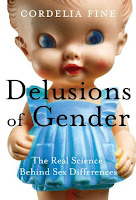I advise the
Owning Our Ignorance club here at CCC. We have a lot of nerdy discussions, host movie nights, and do other stuff in pursuit of getting better at learning. If you join our
Facebook group, you'll be automatically invited to all our events.
Our big project this semester is creating a radio show. Well, the first episode of the
Owning Our Ignorance Show airs this Tuesday at 9:00 a.m. on
WDBK, the college radio station. Tune in to 91.5 FM to hear Calvin, Destiny, Jordan, and Rachel discuss the role that humility plays in effective reasoning.
If you like the show, you can subscribe to the podcast
here (or via
iTunes). Upcoming show topics include the following:
- the most important questions
- good vs. bad skepticism
- persuasion
- happiness
- art
- prejudice
- Ayn Rand
- our top 5 to learn lists
- cognitive biases








 If you're interested in some thoughtful analysis of abortion, euthanasia, stem cells, impaired infants, cloning, killing, and personhood, among other things, you should check out Jeff McMahan's
If you're interested in some thoughtful analysis of abortion, euthanasia, stem cells, impaired infants, cloning, killing, and personhood, among other things, you should check out Jeff McMahan's 

